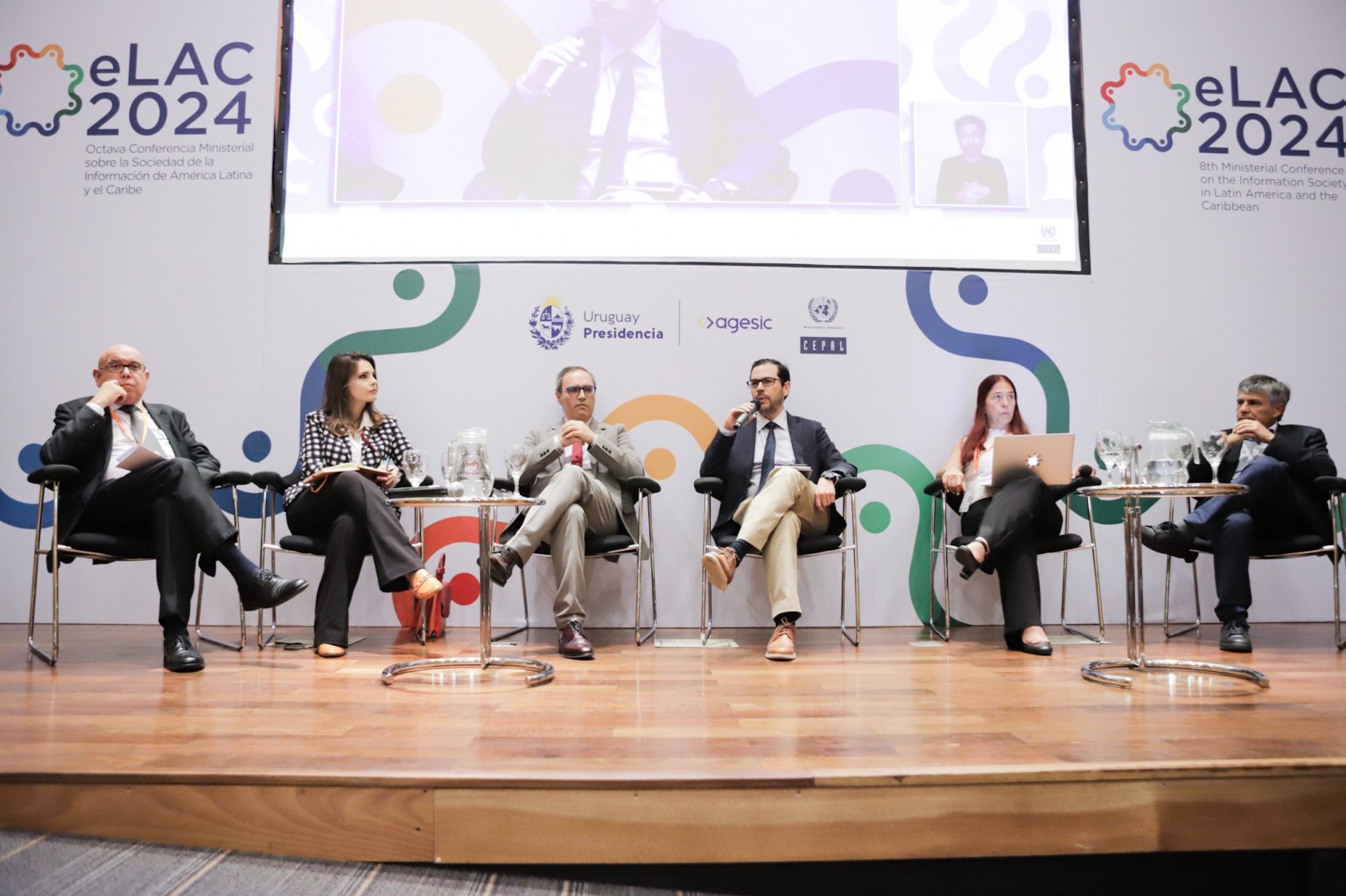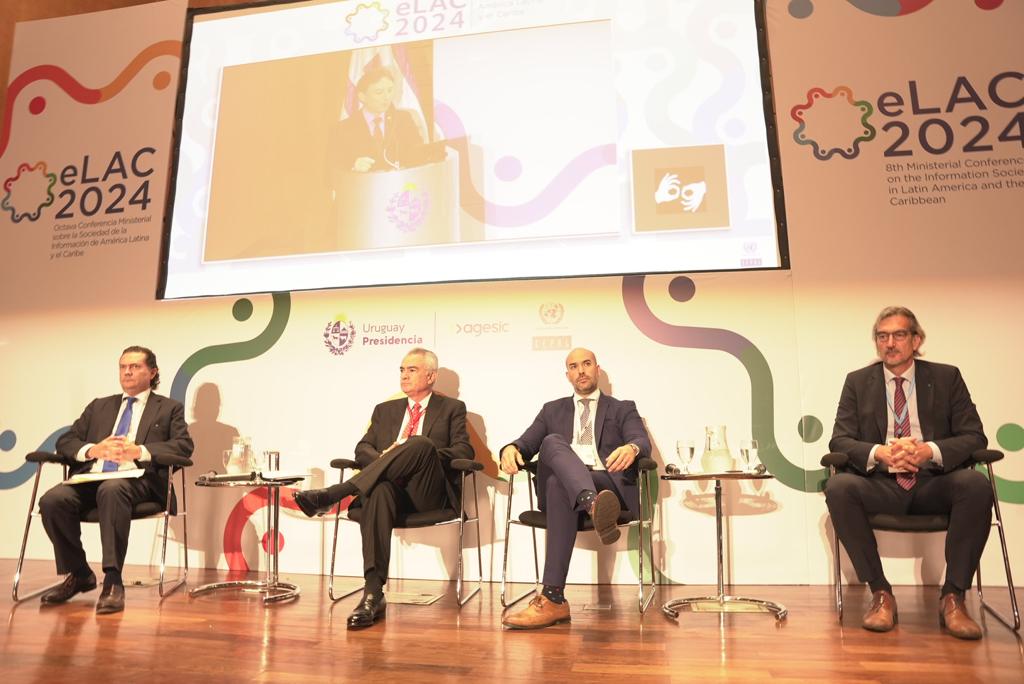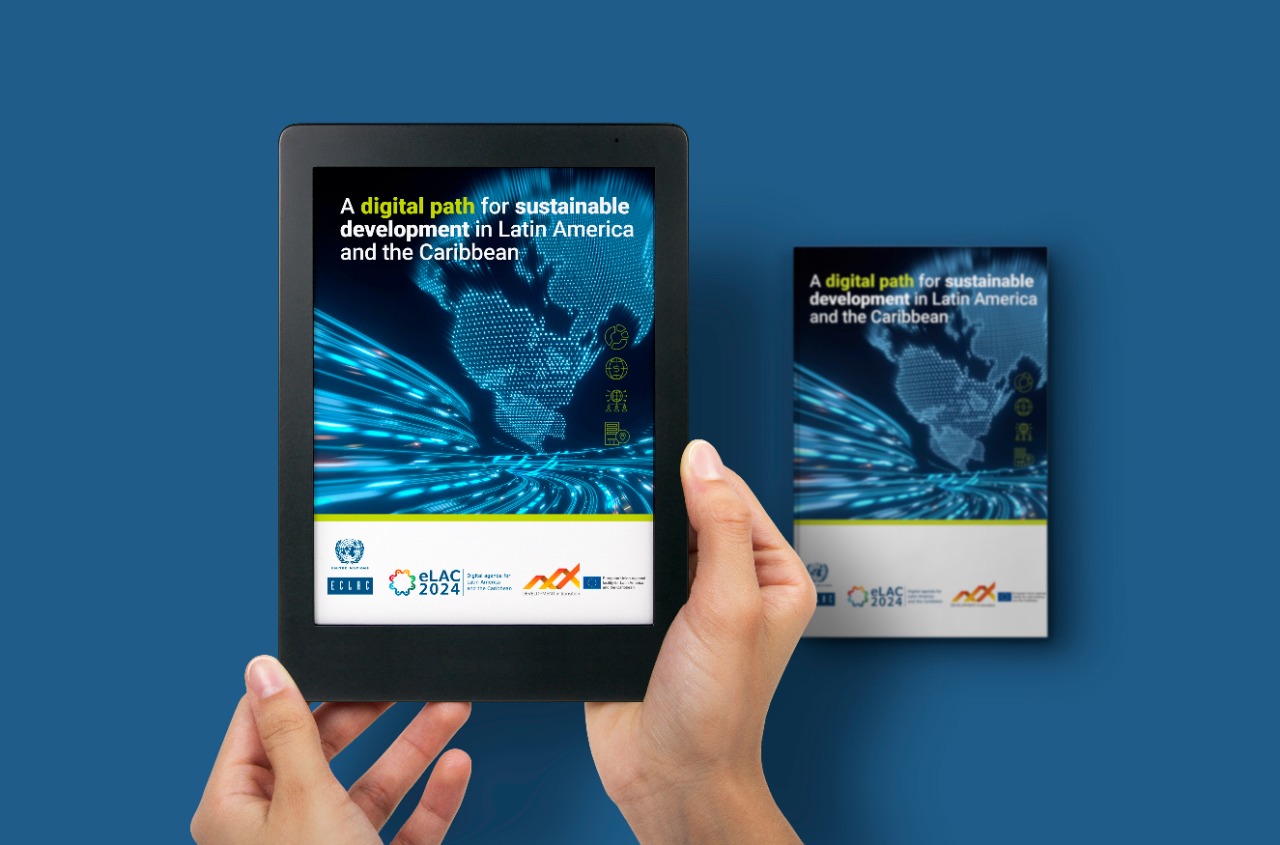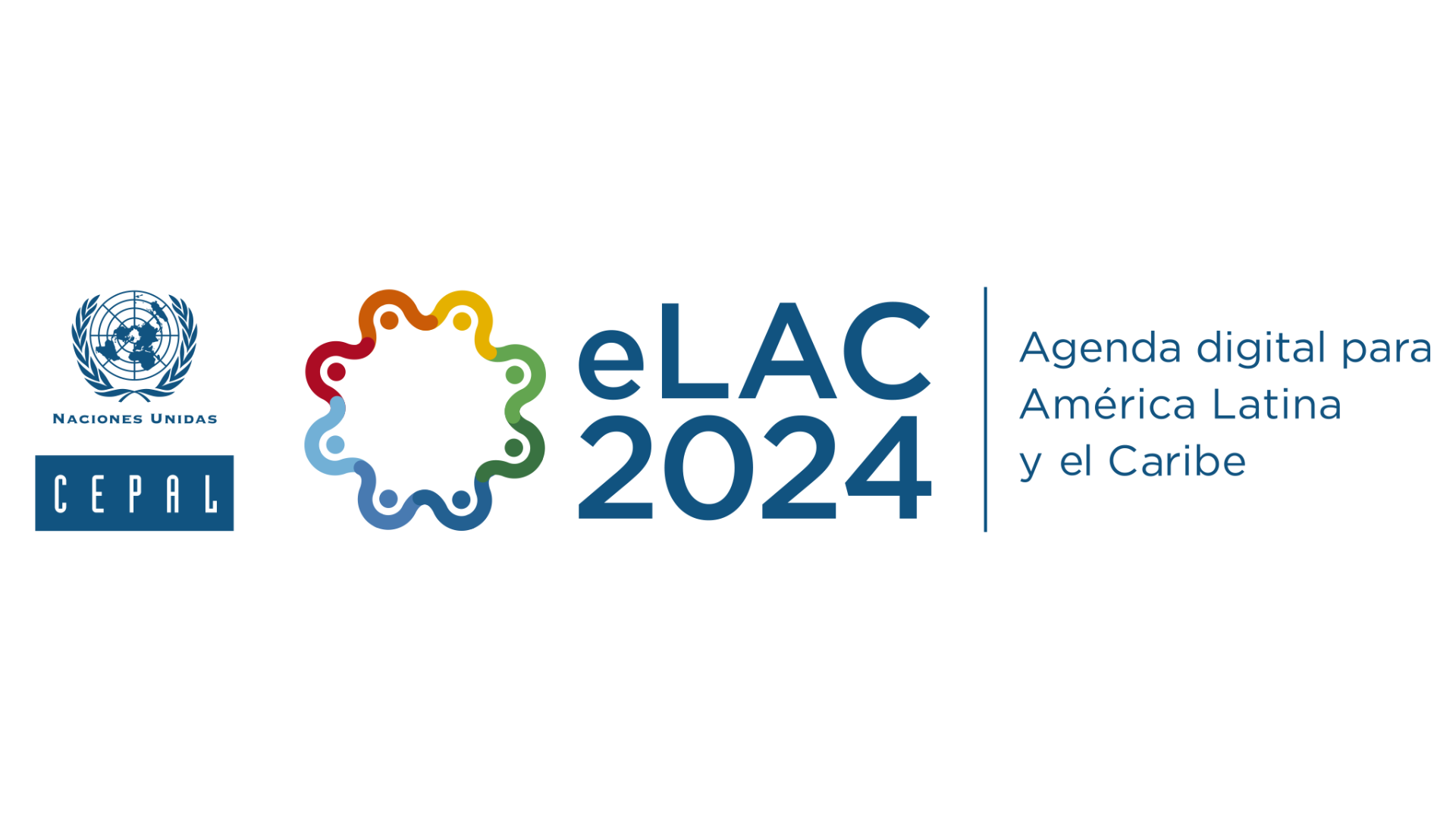Participants Analyze Digitalization’s Impacts on Social Inclusion, Education and Labor Policies, Agriculture and Trade in the Region
Work area(s)
Authorities and specialists addressed these and other issues on the second day of the Eighth Ministerial Conference on the Information Society in Latin America and the Caribbean, which is taking place through Friday, November 18 in Montevideo.

Six panel discussions dedicated to issues such as digitalization for greater inclusion, competences and skills for societies in transformation, cybersecurity and critical assets, digital solutions for agriculture, and digital trade and SMEs, among others, took place on the second day of the Eighth Ministerial Conference on the Information Society in Latin America and the Caribbean, which is being held in Montevideo, Uruguay through this Friday, November 18, 2022.
Representatives of government, the private sector, the technical community and civil society from the region are participating in the gathering organized by the Economic Commission for Latin America and the Caribbean (ECLAC) in conjunction with the Government of the Eastern Republic of Uruguay, through the National Agency for e-Government and the Information Society (AGESIC). The aim is to define a set of policy priorities at the regional level to drive digital transformation with a vision of sustainable development, in the framework of the Digital Agenda for Latin America and the Caribbean (eLAC 2024).
On the first panel of the day, entitled Digitalization for greater inclusion: closing gaps and enhancing economic autonomy, speakers stressed the need to ensure the affordability and quality of the Internet connection for the entire population, thereby closing the significant gaps that persist in the region in relation to territory, age and gender, as well as other factors. Digital technologies are key for fostering women’s economic autonomy and the inclusion of persons with disabilities, for example, they emphasized.
Following that, at a session entitled Labour market and employment: competences and skills for societies in transformation, the panelists called attention to the diverse challenges that countries face for reducing labor informality and improving young people’s incorporation into labor markets that are extremely changeable, in which jobs are disappearing and demand for new knowledge arises. The region’s educational offerings must be flexible and enhance skills such as collaborative problem-solving and the ability to learn, with short, medium and long-term perspectives, they indicated.
On another of the Conference’s panels, Agritech in LATAM: sectoral digital agendas and regional experiences, government representatives and academics shared national and local policies and experiences, and they posed the urgency of expanding digitalization in the agricultural sector and in rural areas, as well as strengthening public-private partnerships and promoting research and innovation on digital solutions for the farming sector.
Similarly, at a session entitled Digital trade and SMEs: spaces to improve regional competitiveness, the panelists analyzed the recent experience of Small and Medium-sized Enterprises (SMEs) during the COVID-19 pandemic, which forced them to digitalize quickly in order to survive, and they stressed the importance of prioritizing this issue on the region’s public agendas to improve smaller companies’ competitiveness and their possibilities for internationalization and thereby move towards a regional digital market.
On the panel entitled The relevance of measuring the progress of digitalization: digital development observatory for Latin America and the Caribbean, the speakers flagged the need to make progress on the generation of indicators and metrics to better assess the magnitude of the digital divide and to guide countries’ public policies. They added that greater regional cooperation is urgently needed in this area. Finally, at a session on the state of Cybersecurity and critical assets, the panelists urged all interested parties to work together to create capacities and to cooperate on this critical issue for the region’s digital transformation.
On the first day of the Conference, ECLAC’s Executive Secretary, José Manuel Salazar-Xirinachs, presented the document A digital path for sustainable development in Latin America and the Caribbean, which proposes diverse measures and actions for moving towards an inclusive and sustainable digital transformation in the region.
Related content

Digitalization is a Priority for Transforming the Development Model in Latin America and the Caribbean
Today the Eighth Ministerial Conference on the Information Society in Latin America and the Caribbean was inaugurated in Montevideo.

ECLAC Proposes Measures and Actions for Moving Towards an Inclusive and Sustainable Digital Transformation
The regional organization’s Executive Secretary, José Manuel Salazar-Xirinachs, presented today the main document of the Eighth Ministerial Conference on the Information Society in Latin America and…

A digital path for sustainable development in Latin America and the Caribbean
Presentation by José Manuel Salazar-Xirinachs, Executive Secretary of ECLAC, in the Eighth Ministerial Conference on the Information Society in Latin America and the Caribbean.
Related event

Eighth Ministerial Conference on the Information Society in Latin America and the Caribbean
The Eighth Ministerial Conference on the Information Society in Latin America and the Caribbean is jointly organized by the United Nations Economic Commission for Latin America and the Caribbean …
Subregional headquarter(s) and office(s)
Type
Country(ies)
- Latin America and the Caribbean
-
Uruguay
Related project(s)
Contact
Public Information Unit
- prensa@cepal.org
- (56 2) 2210 2040

